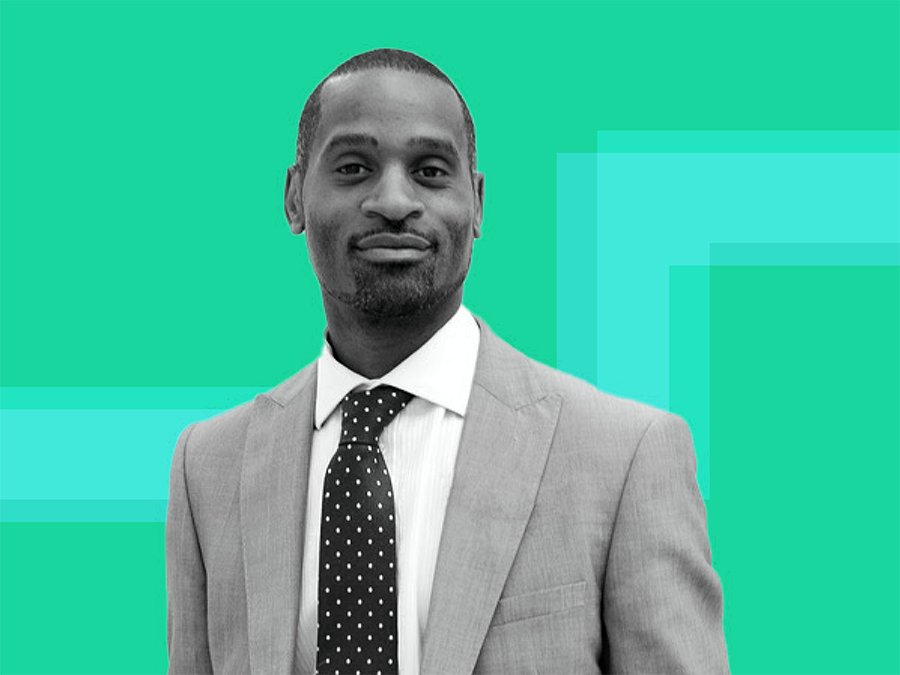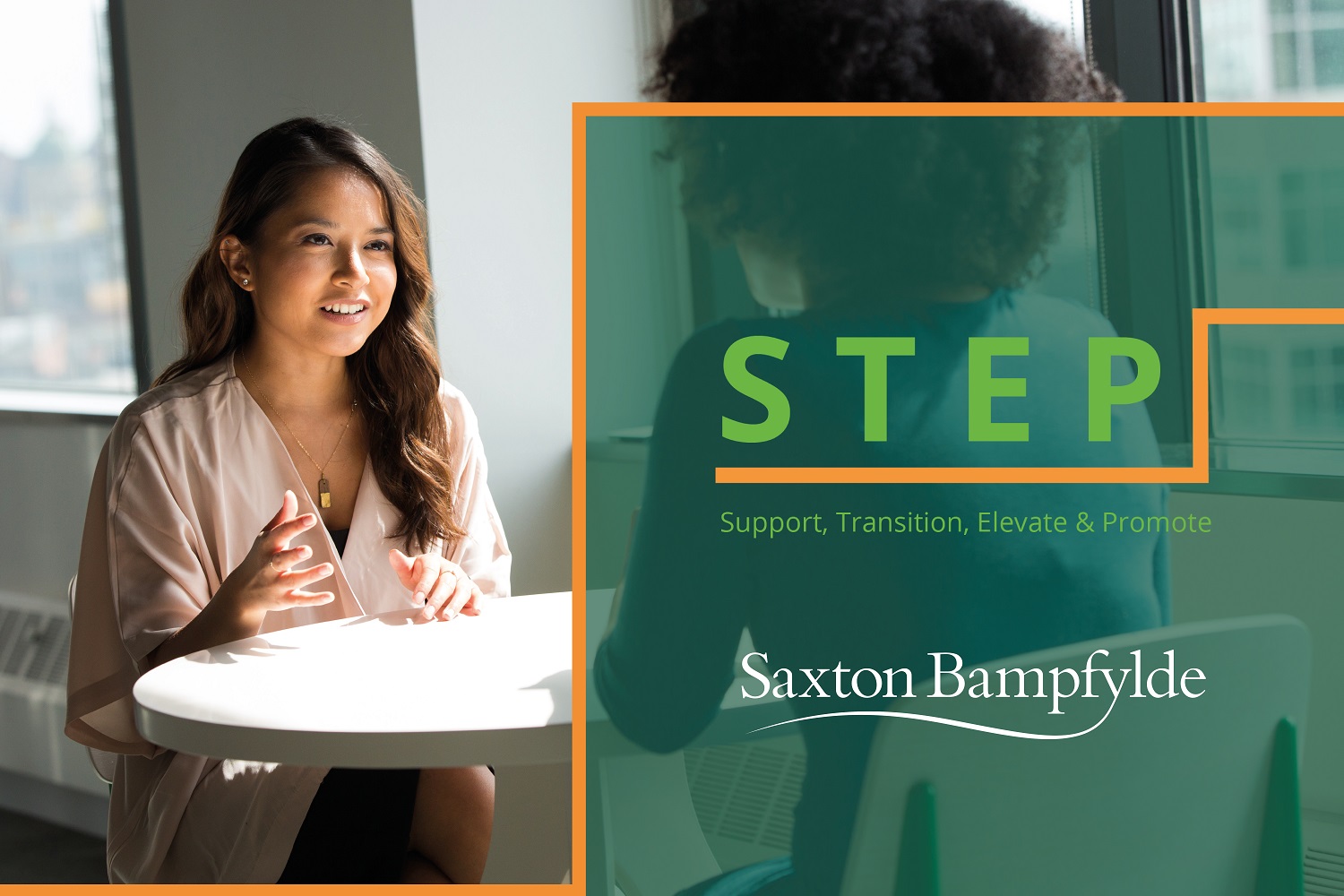
We are delighted to share insights from four of the STEP Programme coaches. We hear about what motivated them to become coaches and how more can, and should, be done to bring forward and support diverse leaders. They offer advice about what people should be looking for in coach and how to find the right one.
Rory Campbell:
What do you think is different about STEP? What prompted you to become involved?
STEP is confidently leaning into a pragmatic need: providing high quality development to the next generation of executive leaders from diverse backgrounds. It’s doing more than just talking about the ‘talent pipeline’; it’s helping it to flourish.
Knowing the calibre, ethics and quality of Saxton Bampfylde gave me confidence that this is a programme delivered with belief and purpose.
I want to play my part in creating more inclusive businesses – and that means more diverse and inclusive leadership.
What inspired your journey to become a coach or mentor and how does this influence the way in which you coach?
For many years I have coached and mentored. I honestly don’t think that I hit a point where I ‘started’, it’s simply always been the way I lead and contribute. I’m a big believer that we’re better when we support each other to grow and learn.
Right now I’m doing further development with a world-class coaching faculty, equipping me with new and deeper skills, to support a broader range of inspiring leaders in increasingly complex environments.
What advice would you give people who are looking for a coach?
Be open to learning, welcome the support to think in a way that you may seldom have the opportunity to in your busy day-to-day working life. Expect to be stretched – not because the coach is stretching you, but because you’re reaching even further and deeper into your own potential.
It takes commitment and an appetite to grow, along with a willingness to put in the work. You might come to coaching looking for answers; you’ll leave realising you are limitlessly resourceful and that you can surface the answers from within.
Can you describe a big change you have gone through or helped a client through?
I recently worked with a newly appointed CEO who had risen through the organisation in a blaze of glory and praise, only to find they struggled with the demands of the top job.
We worked together to recalibrate their measures of success, reconnect their driving passion, elevate their inner sense of purpose, and to have the resolve when restructuring their executive team with vision and aspiration.
I was deeply inspired by their leadership and courage.
Can you talk about an important transition point in your career, why was it important? What support helped you and was there more you wish you had?
Despite working with exec teams and as an Operating Director for a consultancy, becoming a board member in a multi-billion pound retailer was different!
It was a time of transformation for the business and industry; I needed to adapt, learn and perform fast.
I had a great boss who advocated for me, coaching that helped to clarify my best thinking, and a board who believed in my potential. My only wish: that I’d anticipated the scale of personal change in advance.
What has the last year taught us about the need to have more diversity at the leadership level?
Through this last year the nature and scale of inequality has been visible for all to see. We’ve seen that it pervades every aspect of society – wellbeing, community and work.
Businesses have operated at the human scale, not the abstract, and reckoned with the powerful impact we can have. It’s reminded us all that our leadership is better for diversity: both to lead with inclusion by design and to account for the many potential paths to recovery and shared growth.
What are the barriers to getting more minority ethnic individuals to a leadership level?
We are making progress – it’s just glacially slow. Why? For two key reasons:
1) The seats are already occupied. It takes time for opportunities and minds to open.
2) Many organisations are compelled to act by legislation and governance, not by self-determined motivation.
To make faster and deeper progress, we need to elevate our diversity conversation, to explore how we can inspire authentic progress by establishing clearer links to organisations’ purpose and be consistently demanding of accountability for outcomes.
Rory Campbell – Biography
Rory is Director and Co-founder of New Vantage Consulting, established in 2019. They focus on helping businesses small and large, not-for-profit and private sector to achieve their ambitions by seizing the advantage of new perspectives with purpose, leadership and outstanding delivery. His areas of expertise are executive coaching, leadership facilitation, purpose and engagement. Clients include a Queen’s Award-winning linguistic dynamics business; a government-backed not-for-profit focused on improving UK economic productivity; a social mobility and apprenticeships enterprise; a Los Angeles based, international sports and entertainment agency; and a UK financial services mutual.
This year has seen an increase in projects focused on responsible leadership, personal performance and helping Boards / Executive Committees to develop purposeful approaches to advancing inclusion. Before co-founding New Vantage Consulting, Rory held a Board position for a leading UK retailer, directors’ roles at a management consultancy and a range of HR and communication leadership positions for one of the UK’s leading financial services firms. As an advocate for positive, inclusive change, Rory holds a number of voluntary positions, including as a Visiting Fellow of Nottingham Business School; a Fellow of The RSA; an Independent Member for the Joseph Rowntree Foundation and Joseph Rowntree Housing Trust; member of Engage for Success’ Line Management Task and Action Group.
Read further interviews in the series
